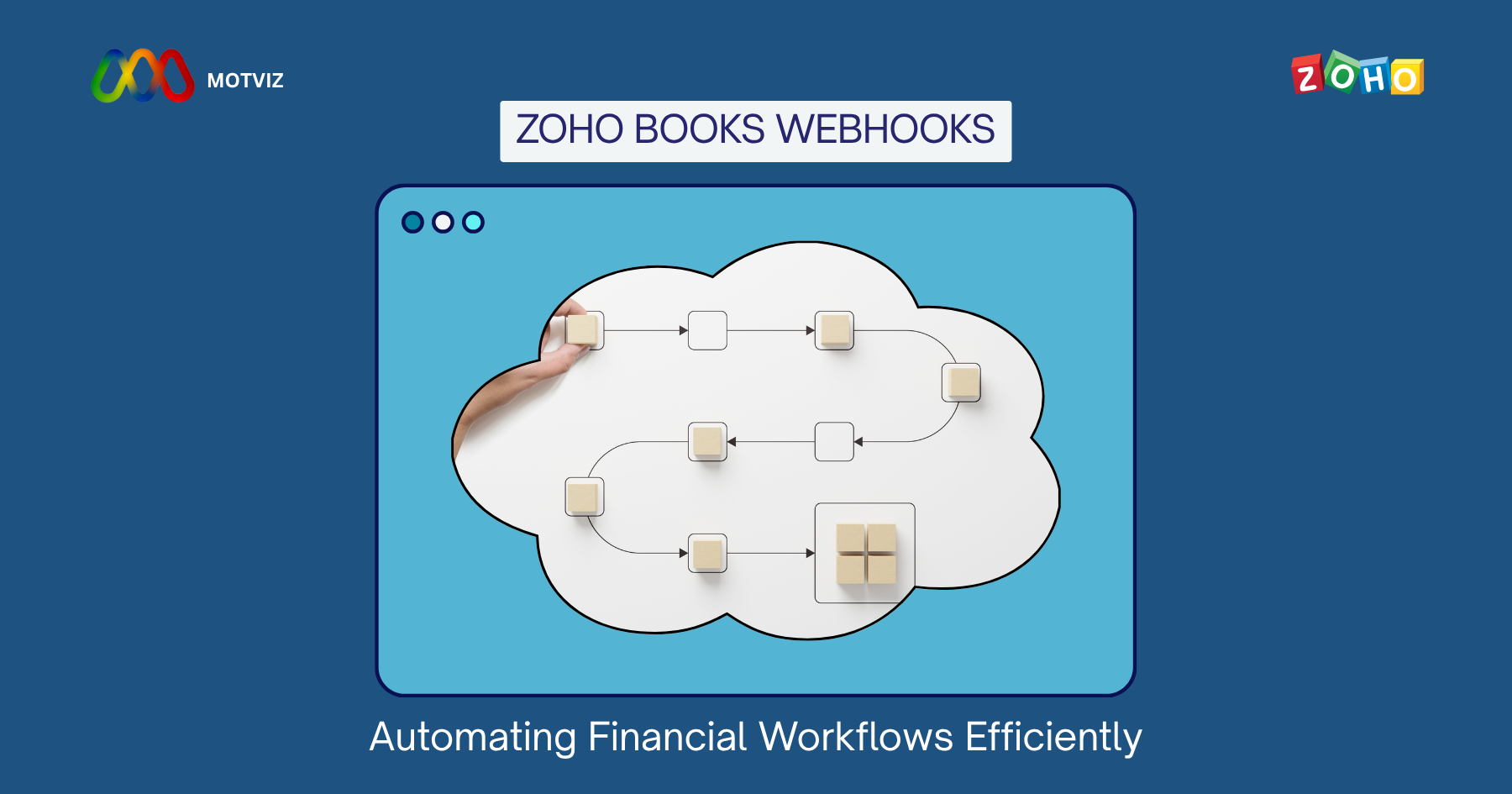
Zoho Books Webhooks: Automating Financial Workflows Efficiently
In today’s fast-paced business environment, automating workflows is crucial for accuracy and efficiency. Zoho Books offers webhooks that can help developers automate tasks by notifying external systems in real-time when specific events occur (e.g., invoice creation, payment received).
Here’s a step-by-step guide to setting up and using Zoho Books webhooks effectively.
📝 1️⃣ What is a Webhook in Zoho Books?
A webhook is a user-defined callback URL that gets triggered automatically when a specific event happens in Zoho Books. It sends HTTP POST requests to the specified URL, containing data about the event.
⚙️ 2️⃣ Setting Up a Webhook in Zoho Books
Step 1: Login to Zoho Books
- Log in to your Zoho Books account as an admin.
Step 2: Navigate to Webhooks
- Go to Settings > Automation > Webhooks.
Step 3: Create a New Webhook
- Click Create Webhook.
- Provide:
- Name: e.g., Invoice Created Webhook
- Module: Choose a module like Invoices, Payments, etc.
- Event: Select the event (e.g., Invoice Created, Payment Received).
Step 4: Enter Callback URL
- Specify your callback URL (the endpoint that will handle the webhook payload).
- This URL should be publicly accessible and configured to receive HTTP POST requests.
Step 5: Set Parameters (Optional)
- You can define custom parameters (key-value pairs) to send along with the webhook.
Step 6: Save and Enable
- Save your webhook and enable it.
🖥️ 3️⃣ Handling the Webhook Payload
On your server (where the callback URL points), implement a script to:
✅ Receive the webhook POST request
✅ Parse the JSON payload
✅ Perform actions based on the data
Sample PHP Code:
<?php
// Capture the raw POST data
$payload = file_get_contents(‘php://input’);
// Log it or process it
file_put_contents(‘zoho_books_webhook_log.txt’, $payload . “\n”, FILE_APPEND);
// Decode JSON
$data = json_decode($payload, true);
// Perform actions
if (isset($data[‘invoice’])) {
// Example: Log invoice details
file_put_contents(‘invoice_log.txt’, print_r($data[‘invoice’], true), FILE_APPEND);
}
?>
🔐 4️⃣ Security Considerations
- Verify Source: Use verification tokens or headers to ensure requests are from Zoho.
- HTTPS: Always use SSL/TLS to secure your callback URL.
- Rate Limits: Handle multiple rapid webhook calls gracefully.
🔄 5️⃣ Testing Your Webhook
- Use tools like Postman to simulate webhook payloads.
- Check your server’s logs to confirm data is received and processed correctly.
- Use Zoho Books sandbox for safe testing.



